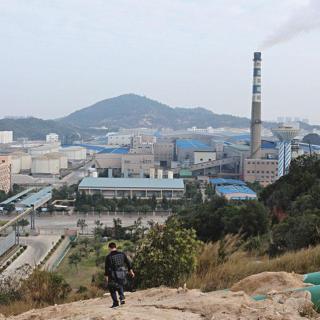
介绍:
In the fight against industrial pollution, government and non-government organizations are increasingly looking towards tougher regulatory and market-based mechanisms to track the environmental protection standards of publicly listed companies.
Since January 1, when the government revised the national Environmental Protection Law, Chinese companies have faced a higher regulatory bar for industrial emission standards. Companies can now be fined daily for a pollution problem until it’s resolved, with the government also adding environmental evaluations to routine job performance assessments of local officials.
Beyond a tightened regulatory environment, Beijing-based NGO Institute of Public and Environmental Affairs (IPE) and state-run newspaper Securities Times are coordinating a parallel fight against pollution based on investor confidence.
Trusting that the equities market can influence corporate behavior, the environmental track records of publicly listed companies are now being compiled and publicized. The first data report was released on January 6 and focused on 20 companies listed on mainland, Hong Kong and overseas stock markets whose facilities potentially violate the new environmental protection regulations.
IPE Director Ma Jun said the monitoring of the growing list of companies is designed to help stock investors evaluate companies from an environmental risk perspective, thereby creating a financial incentive for companies to adopt environmentally responsible policies.
Firms are ranked according to a risk index based on data from local government environmental agency websites and company data, and focuses primarily on air emissions.
Reception of the new measures has been mixed. Some environmental experts have applauded the initiatives, while others remain hesitant, with some observers arguing that the environmental risk index will have little impact on investor behavior unless the government strictly enforces the revised law.
While such market-based public accountability mechanisms are quite common globally, it’s rare for a Chinese stock investor to make decisions based on a company’s environmental performance, Ma said.
According to Ma, investors generally see China as a land with low fines for emissions violations, which to investors means companies can pollute without facing serious financial risks.
Some firms have been quick to respond to the new index, but the majority have remained silent.
For Caixin Online, this is Nick Horton.
大家还在听

